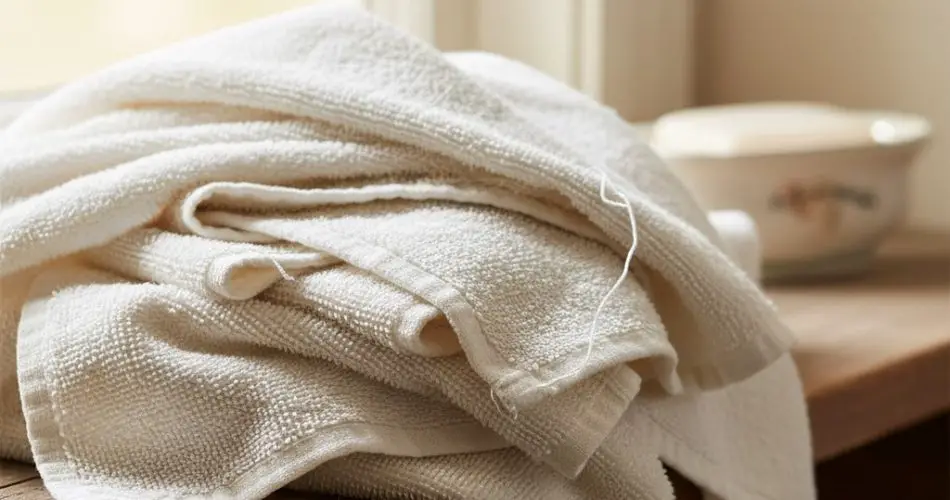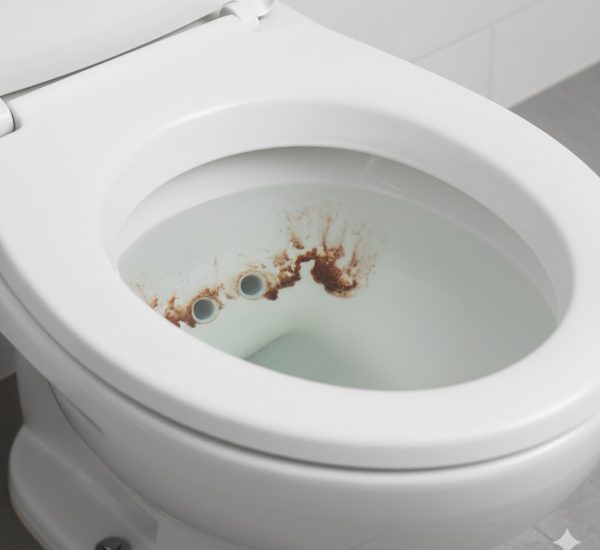Over time, even the most durable towels can lose their softness, whiteness, and freshness. Frequent washing, exposure to heat, and improper care often leave towels looking dull, yellowed, and rough to the touch. Many people face this common problem and may even consider replacing their towels, but in most cases, there are effective natural methods to restore them to their former glory without spending a fortune. From baking soda to lemon juice, these remedies are simple, safe, and eco-friendly.
Understanding the Problem
White or light-colored towels are often preferred in bathrooms for their clean and versatile appearance. They match any décor, offer a sense of freshness, and give a sophisticated touch to the bathroom environment. However, frequent use and washing can take a toll. Improper laundry techniques, such as using too much detergent or washing at high temperatures without the right additives, can accelerate discoloration. Over time, towels often develop a yellowish or grayish tint and lose their soft texture, making them less comfortable to use.
Fortunately, there are household solutions that can restore their color and softness without harsh chemicals. The key is to use ingredients that naturally whiten, soften, and deodorize the towels.
Baking Soda: A Classic Solution
Baking soda, a staple in most kitchens, is one of the most effective home remedies for yellowed towels. Its natural properties allow it to whiten, remove stains, and soften fabrics. Using baking soda is straightforward, whether you choose to wash towels in a machine or by hand.
For a machine wash, add two to three tablespoons of baking soda either directly into the drum or into the detergent compartment. Then, run the washing machine on the appropriate cycle for towels. Baking soda helps remove residue and restores brightness, leaving towels soft and fresh.
For hand washing, dissolve the same amount of baking soda in a basin of warm water. Soak the towels for a while to allow the solution to work on the discoloration. After soaking, rinse thoroughly and wash as usual.
White Vinegar: Natural Softener and Deodorizer
White vinegar is another versatile ingredient that has long been used for cleaning and laundry purposes. Known for its grease-cutting and deodorizing properties, vinegar is also highly effective at whitening towels and softening rough fabrics.
To use white vinegar, fill a basin with warm water and add half a cup of vinegar. Soak the towels for several hours, then rinse and wash as usual. This treatment is particularly effective for towels that have become stiff or scratchy over time.
Vinegar can also be used in a washing machine. Simply pour half a cup into the detergent compartment and run the machine as usual. This method not only softens and whitens towels but also helps maintain the washing machine by preventing limescale buildup.
Lemon Juice: A Natural Whitening Agent
Lemon juice is a natural bleaching agent that has been used for generations to keep white fabrics bright. Its fresh scent and whitening ability make it ideal for towels.
For machine washing, mix 500 milliliters of water with half a cup of lemon juice and pour it into the detergent compartment. Then, proceed with the regular wash cycle.
For hand washing, boil one liter of water and add two sliced lemons. Immerse the towels in the hot lemon water and leave them to soak for about 30 minutes. After soaking, wash them as usual. The acidic properties of lemon juice help restore whiteness and freshness. However, lemon juice should be used only on light-colored or white towels, as it can cause discoloration on darker fabrics.
Citric Acid: An Alternative to Vinegar
For those who prefer not to use vinegar, citric acid is an excellent alternative. It is commonly used to remove limescale from washing machines, but it can also be employed to whiten towels naturally.
To use citric acid, dissolve 150 grams in one liter of warm water. For machine washing, pour about 100 milliliters of this solution into the detergent compartment for each load. The citric acid helps remove yellowing, softens the towels, and keeps the machine clean.
Tips for Maintaining White and Soft Towels
While natural treatments are highly effective, proper care is essential to maintain their benefits. Here are some key tips:
-
Separate Colors: Wash white towels separately from colored ones to prevent color transfer.
-
Avoid Overloading the Washer: Towels need space to move freely to ensure thorough cleaning and rinsing.
-
Use the Right Temperature: Warm or hot water can help remove buildup and stains, but avoid excessive heat that can damage fibers.
-
Maximize the Spin Cycle: Proper spinning removes excess water, helping towels dry faster and reducing the risk of musty odors.
-
Avoid Fabric Softener Overuse: While softeners can make towels fluffy, excessive use can leave residue that decreases absorbency. Using vinegar or citric acid instead provides natural softness.
Conclusion
Restoring old and yellowed towels is simple and cost-effective when using household ingredients such as baking soda, white vinegar, lemon juice, and citric acid. These natural solutions whiten, soften, and deodorize towels while being environmentally friendly and safe for daily use.
With consistent care and occasional natural treatments, your towels can look bright, feel soft, and smell fresh, extending their lifespan and saving you from unnecessary replacement costs. By combining traditional remedies with proper laundry practices, it’s possible to maintain a set of clean, white, and luxurious towels that rival those found in hotels.
These methods are not only effective but also encourage sustainable and responsible household management, giving old towels a new lease on life.



